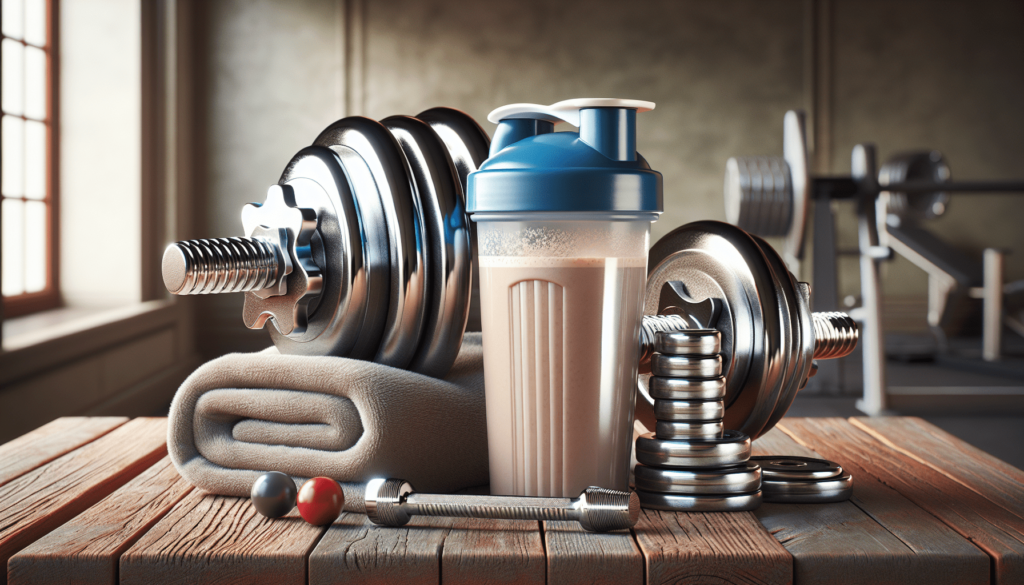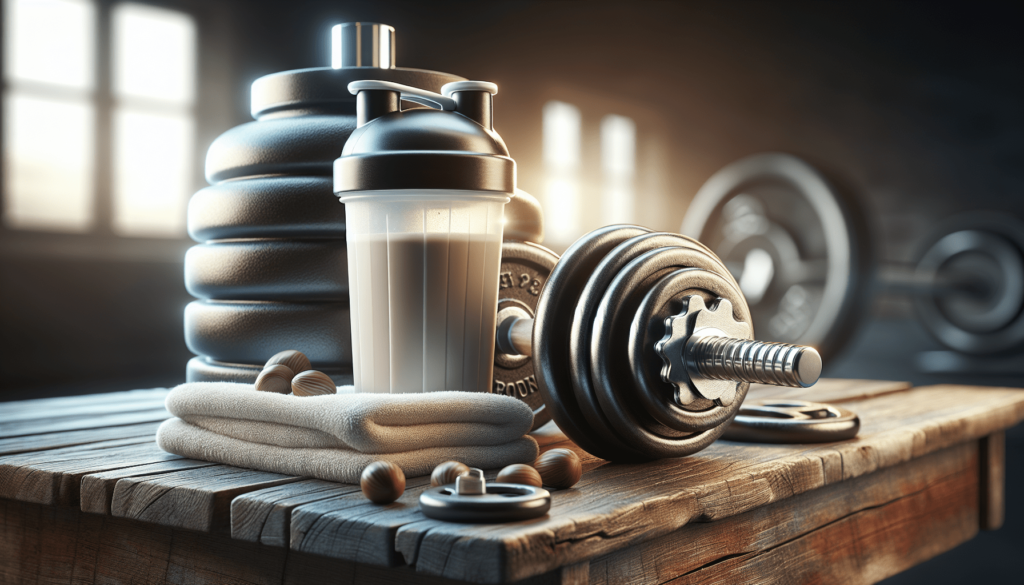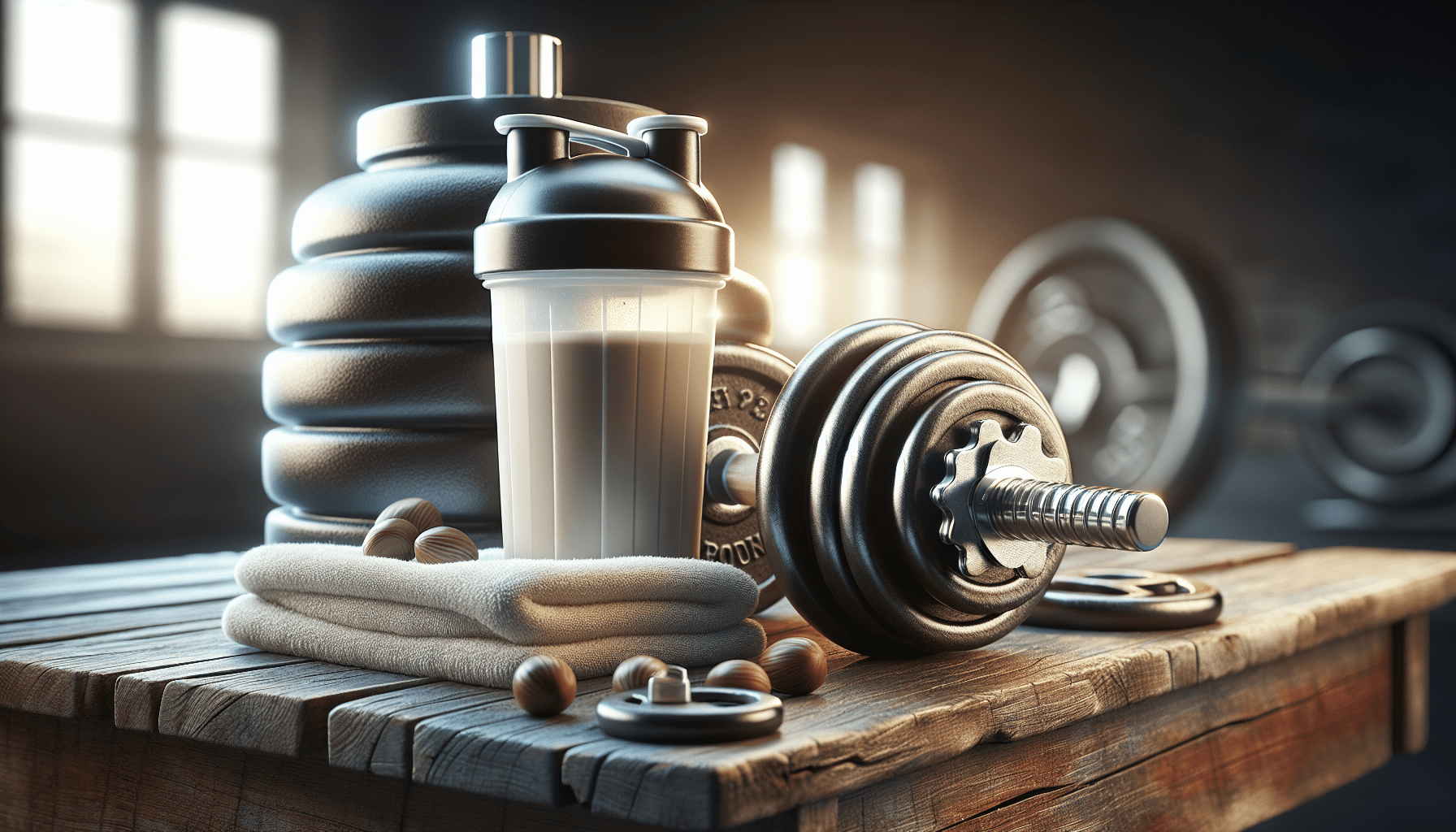Have you ever wondered if there’s a secret formula to becoming the next muscle-bound superhero, minus the radioactive spider bite or gamma radiation? Look no further than your plate and gym schedule! You see, it’s not just about how much protein you’re cramming into your pie-hole, but also when you’re doing it. That’s right, timing is everything, especially when it comes to protein and those coveted gains.

The Science Behind Muscle Growth
Before you slap a protein patch on and expect instant Hulk status, let’s break down the science. Muscles grow through a process called muscle protein synthesis (MPS), which, as fancy as it sounds, is really just your body’s way of saying, “Out with the old muscles, in with the new, buff ones.” Every time you lift weights or engage in any form of resistance training, you create tiny tears in your muscle fibers. Sounds painful, but fear not, this is exactly what you want.
Muscle Protein Synthesis
When these micro-tears occur, your body gets the memo that it’s time to repair and rebuild. Here’s where MPS comes into play. This process is essentially your body’s construction crew, using amino acids—the building blocks of protein—to repair the damage. Basically, it’s like remodeling your bathroom, but instead of a new tub, you get biceps.
The Role of Amino Acids
Amino acids are the LEGO bricks of the protein world. They’re the tiny pieces that, when locked together in just the right way, create something larger and much more impressive—like that massive Millennium Falcon you always wanted as a kid. There are 20 different amino acids, nine of which are essential. And while your body can whip up the non-essential ones on its own, the essential ones must come from your diet. Think of them as VIP guests.
Protein Synthesis vs. Protein Breakdown
Now, here’s where it gets juicy. Your body is in a constant state of flux between protein synthesis (building muscle) and protein breakdown (losing muscle). It’s like an endless tug-of-war between a sushi chef (building beautiful rolls) and your hungry friends (devouring them). For optimal muscle growth, you want to ensure that the sushi chef wins most of the time, offering more rolls than can be gobbled up.
The Magic Window: Timing Your Protein Intake
If only there were a magic wand to instantly bulk you up, right? While Hogwarts might not have that spell in their curriculum, science provides us with something close—a “magic” window of time to consume protein for maximum muscle gain.
Pre-Workout Nutrition
Think of the pre-workout period like fueling up your car before a long drive. Consuming protein before a workout can help to reduce muscle damage during training. A combination of protein and carbohydrates is the golden ticket here, providing the energy you need while also priming your muscles for repair.
| Nutrient | Suggested Amount | Time Before Workout |
|---|---|---|
| Protein | 20-30 grams | 1-2 hours |
| Carbs | 30-40 grams | 1-2 hours |
Post-Workout Nutrition
This is the part you’ve probably heard whispers about in the gym locker room—the elusive “anabolic window.” Think of it as your muscles’ happy hour, the optimal time for protein consumption to enhance muscle repair and growth. Various studies have shown that consuming protein shortly after a workout can significantly enhance muscle protein synthesis.
| Nutrient | Suggested Amount | Time After Workout |
|---|---|---|
| Protein | 20-40 grams | Within 30 minutes |
| Carbs | 30-40 grams | Within 30 minutes |
Bedtime Protein
Imagine this scenario: You’re dreaming of flexing in front of a mirror and then wake up to realize that you’ve actually built muscle while sleeping. Yes, it’s plausible! Having casein protein before bed can provide your muscles with a steady supply of amino acids throughout the night, giving a slow but continuous release that aids in recovery.
| Nutrient | Suggested Amount | Time Before Bed |
|---|---|---|
| Casein Protein | 20-40 grams | 30 minutes before bed |
Types of Protein: The Good, The Bad, and The Ugly
Not all proteins are created equal. Some are like that reliable friend who shows up on time and brings snacks, while others are more like that sketchy guy who promises to pay you back but somehow never does.
Whey Protein
Whey protein is the poster child of muscle building, beloved by bodybuilders and gym-goers alike. It’s quickly digested, making it ideal for post-workout recovery. Essentially, it’s the Usain Bolt of proteins.
Casein Protein
On the other hand, casein protein is the tortoise in the tortoise and hare story. Slow-digesting but incredibly effective, casein provides a steady release of amino acids. Perfect for bedtime when muscle growth needs to stay active throughout the night.
Plant-Based Proteins
For the vegetarian or vegan lifters among you, plant-based proteins like pea, hemp, and rice protein can be just as effective. They may take a bit longer to digest than whey but are still quite efficient in pumping up those muscles.
Protein Powders vs Whole Foods
A debate as old as time, or at least as old as modern bodybuilding—should you guzzle down protein shakes or stick to whole foods?
Protein Powders
Quick, convenient, and efficient. Ideal for anyone whose schedule is tightly packed and needs a quick protein fix.
Whole Foods
Rich in other essential nutrients like vitamins, minerals, and carbohydrates, whole foods are a great protein source. Chicken breast, lean beef, fish, eggs—think of them as the Avengers of your diet.
Quantity Matters, Too
Remember Goldilocks and the three bears? She didn’t want her porridge too hot or too cold, she wanted it just right. Your protein intake is the same way—not too little, not too much, but just right.
The Protein Threshold
More isn’t always better. For example, studies indicate that consuming more than 40 grams of protein in one sitting doesn’t significantly increase muscle protein synthesis compared to 20 grams. So, save that double serving of steak for someone who’s not looking to build muscle efficiently.
Daily Protein Intake
The general recommendation for those looking to gain muscle is roughly 1.6 to 2.2 grams of protein per kilogram of body weight per day. For a 150-pound (68 kg) person, this means about 109-150 grams of protein daily. Split this up throughout the day to keep your muscles in a constant state of repair and growth.
| Body Weight (kg) | Protein Range (grams/day) |
|---|---|
| 50 | 80-110 |
| 60 | 96-132 |
| 70 | 112-154 |
| 80 | 128-176 |
| 90 | 144-198 |

The Impact of Consistency
You can’t expect to build a chiseled physique by binge-eating a chicken farm one day and then slacking off the next two weeks. Consistency is key. Make protein timing a habit.
Habit Building
Like brushing your teeth or avoiding your ex at social gatherings, getting your protein timing spot-on requires consistency. Set reminders if you must or marry someone who will yell at you for skipping your post-workout shake. Whatever works.
Long-Term Gains
Muscle growth isn’t a sprint; it’s a marathon. Establish a consistent routine, and the gains will follow. Don’t just focus on one meal; think of your weekly, monthly, and even yearly intake. Rome wasn’t built in a day, and your biceps won’t be either.
The Role of Supplements
Let’s address the protein elephant in the room: supplements. They aren’t magic pills but can play a significant role if used correctly.
BCAAs and EAAs
Branch-chain amino acids (BCAAs) and essential amino acids (EAAs) have been shown to stimulate muscle protein synthesis. They’re like the cherry on top of your already nutrient-rich diet.
Creatine
Not a protein, but incredibly effective for muscle growth. Creatine increases your ability to produce energy quickly, thus boosting your overall workout performance.
The Myth of Protein Shakes Only
Don’t restrict yourself to just shakes. There are plenty of ways to incorporate protein into your diet—Greek yogurt, cottage cheese, and even tofu for plant-based lifters. Variety is the spice of life, and your muscles will thank you.
Myths Busted
For every legitimate piece of advice, there’s a dime-store myth lurking around the corner, waiting to trip you up.
Myth 1: More Protein Equals More Muscle
More protein doesn’t automatically translate to more muscle. It’s all about the balance of protein synthesis and breakdown, and how efficiently your body utilizes the protein you consume.
Myth 2: You Can Store Protein for Later
Unlike fats, your body doesn’t store protein in large reserves. Excess protein is either used for energy or excreted. Don’t think you can bank today’s extra protein for tomorrow’s workout.
Myth 3: You Don’t Need Protein on Rest Days
Muscle growth happens not just during workouts but also during rest periods. Ensuring you get enough protein on rest days is crucial for repair and growth.
Personalized Approaches
Your body’s needs are as unique as your choice in workout music. Some people thrive on different timing and intake strategies.
Listening to Your Body
After all these guidelines, the best advice is to listen to your body. If something doesn’t feel right, it probably isn’t. Adjust your protein timing and amounts based on how you feel and how your body responds.
Consulting a Professional
When in doubt, consulting a nutritionist or dietitian can offer personalized advice tailored specifically for you. There’s no shame in seeking expert guidance.
Conclusion
So, next time you see that guy in the gym blending chicken breast smoothies, you’ll know why—he’s just really into his protein timing. While you don’t have to go to those extremes, understanding the importance of when and how you consume protein can be the ticket to unlocking your muscle-building potential. Armed with this knowledge, you’re ready to hit the gym and your kitchen with newfound wisdom. Just remember, muscles are like plants—they need to be fed, watered, and sometimes, whispered to softly.
Whether you’re aiming to look like a Greek god or simply wanting a bit more pep in your step, proper protein timing is the unsung hero of muscle growth. Now go forth and conquer, one protein shake at a time!
